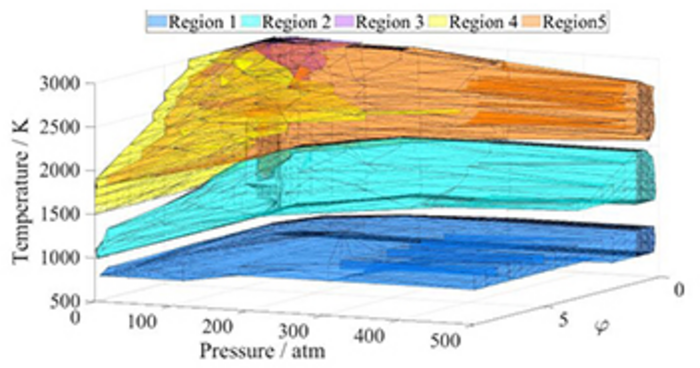Methane is the most significant component of natural gas, and scientists at the Faculty of Science at the ELTE Eötvös Loránd University want to study its properties.
 Researchers of the Faculty of Science at the ELTE Eötvös Loránd University investigate the properties of methane, the most important component of natural gas. Accurate knowledge of the ignition of methane-air mixtures will help to increase the efficiency and reduce the environmental impact of heating and power generation and could also lead to further developments in industrial safety, chemical, and energy engineering. Image Credit: ELTE Eötvös Loránd University
Researchers of the Faculty of Science at the ELTE Eötvös Loránd University investigate the properties of methane, the most important component of natural gas. Accurate knowledge of the ignition of methane-air mixtures will help to increase the efficiency and reduce the environmental impact of heating and power generation and could also lead to further developments in industrial safety, chemical, and energy engineering. Image Credit: ELTE Eötvös Loránd University
An accurate understanding of the ignition of methane-air mixtures will help to enhance efficiency and reduce the environmental impact of heating and power generation and could also lead to further developments in industrial safety and chemical and energy engineering.
Natural gas is one of the most environmentally friendly ways to heat homes and is used by the majority of households in Hungary.
However, the production of electricity also relies heavily on natural gas. Gas turbines and gas engines based on natural gas combustion are an efficient way to mitigate the high fluctuations in solar and wind power generation and can quickly make up for the lost electricity.
A significant proportion of natural gas is methane to varying degrees depending on the area; in Hungary, natural gas contains nearly 97% methane.
It is crucial to research the explosion of methane-air mixtures, the spread of flame in gas engines, and the formation of harmful pollutants during the combustion of natural gas in order to use this colorless, odorless, flammable substance more effectively in environmentally friendly power generation.
On the basis of a thorough reaction kinetics model, the Chemical Kinetics Laboratory of the Institute of Chemistry and the Department of Applied Analysis and Computational Mathematics of the Institute of Mathematics at ELTE — Éva Valkó, Máté Papp, Peng Zhang, and Tamás Turányi — investigated the ignition of methane-air mixtures.
By adjusting the initial temperature (T), pressure (p), and methane-to-air equivalence ratio (ϕ) over a wide range, the sensitivity vector of the ignition time was calculated.
A cluster analysis of more than 14,000 of the resulting sensitivity vectors revealed five distinct domains in the (T, p, ϕ) space, each of which has a unique set of chemical reactions that result in the ignition of methane. The results were published in the journal Proceedings of the Combustion Institute.
Operation of gas engines include compressing a mixture of natural gas and air rapidly to reach a given temperature and pressure. The time to explosion for this high-pressure, hot gas mixture is critical. If a reliable computer model based on a detailed reaction mechanism is available, it can be used to determine whether or not an explosion will occur.
Tamás Turányi, Research Head and Professor, Institute of Chemistry, Eötvös Loránd University
The so-called “e-fuels,” which can get around the restriction of renewable energy production mentioned above, namely the significant fluctuations in the amount of electricity produced, have also been the subject of years of study by Tamás Turányi’s research team.
The energy content of extra electricity can be stored in e-fuels and then re-produced as electricity. Ammonia is one such fuel that has the benefits of being produced with established technology and being simple to move around and store.
Journal Reference:
Valkó, E., et al. (2022) Identification of homogeneous chemical kinetic regimes of methane-air ignition. Proceedings of the Combustion Institute. doi:10.1016/j.proci.2022.07.186.
Source: https://www.elte.hu/en/